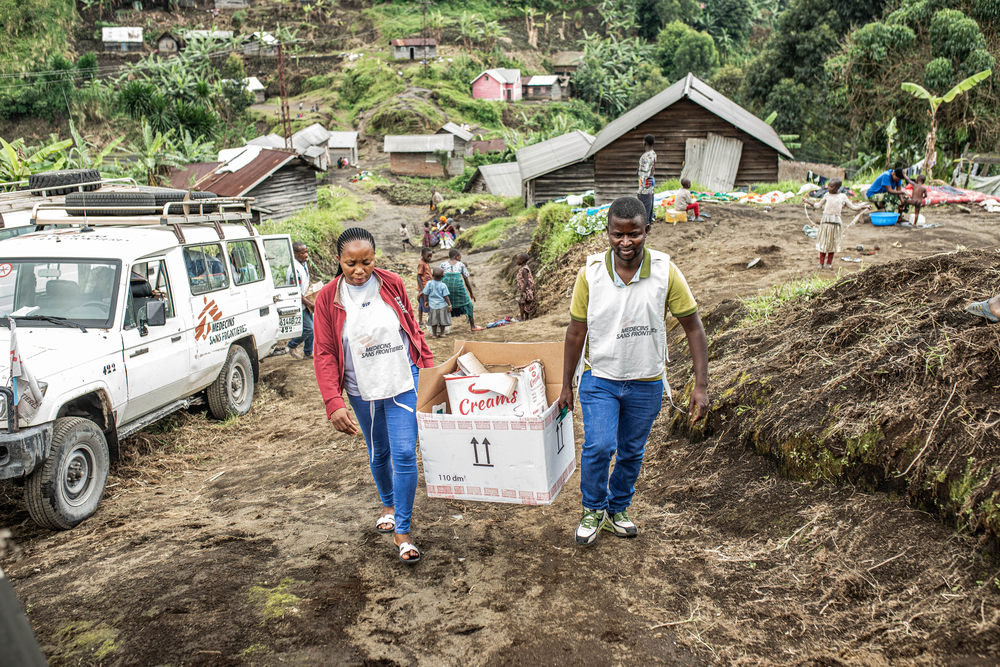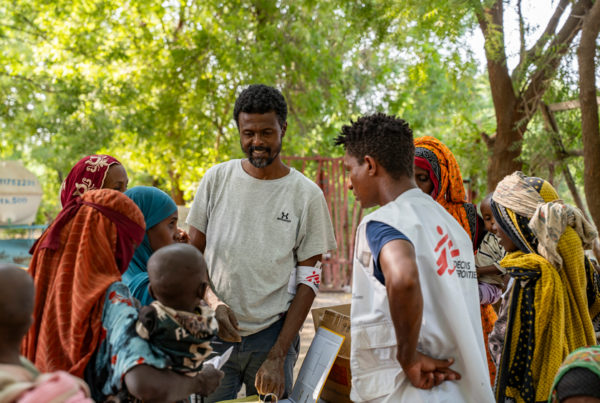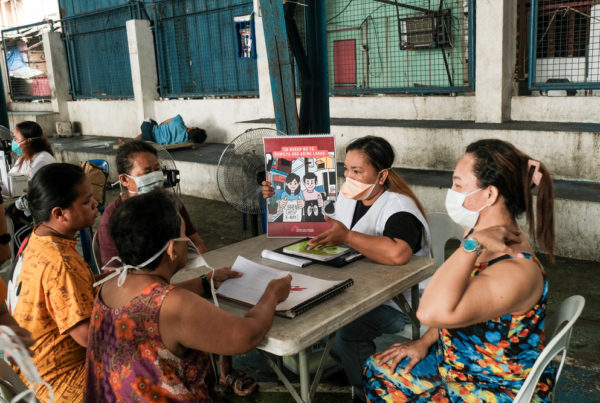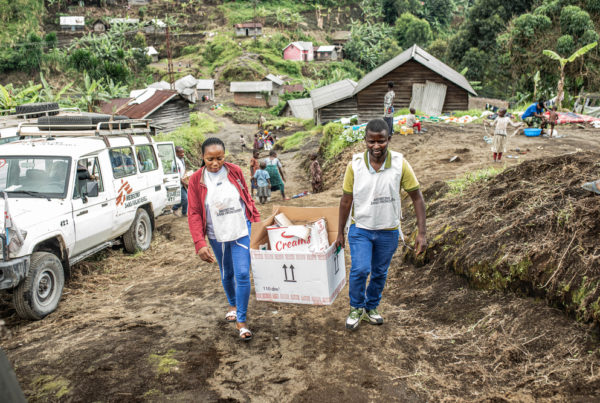
Think men are naturally better negotiators? You might want to think again.
Research shows that men and women perform equally well in negotiations. A comprehensive meta-study found that gender accounts for less than 1% of the variance in negotiator competitiveness. Another study examining the “myth of the male negotiator” revealed that men don’t actually outperform women at the bargaining table – despite widespread assumptions to the contrary.
Yet gender stereotypes – beliefs about how men and women should behave – continue to shape humanitarian negotiations in complex and often harmful ways. Stereotypes about masculinity and femininity continue to influence how negotiators are perceived, how they approach their work, and ultimately, the outcomes they achieve.
Understanding how gender stereotypes harm humanitarian negotiations – and why challenging them benefits everyone – is essential for building more effective, inclusive teams.
Understanding gender stereotypes in conflict contexts
Gender stereotypes are deeply held beliefs about the characteristics men and women should possess. In conflict and negotiation settings, these stereotypes create rigid expectations that affect both male and female negotiators.
What are gender stereotypes in negotiation?
Research consistently shows that masculine and feminine stereotypes manifest differently in negotiation contexts:
Masculine negotiation stereotypes:
- Highly competitive and assertive
- Use intensive, direct language
- Focus heavily on their own interests
- Demonstrate dominance and intransigence
- Value traits like physical strength, action, and aggression
Feminine negotiation stereotypes:
- More cooperative and collaborative
- Use soft language
- Prioritise relationships over outcomes
- Display warmth, sincerity, and empathy
- Show greater sensitivity to non-verbal cues
- Act as selfless caregivers
These stereotypes persist despite limited evidence that men and women actually negotiate differently.

Lucie (borrowed name), female humanitarian negotiator
“I have negotiated in almost every context: Europe, Afghanistan, Darfur, Central America, the Sahel… Being a woman has never been an inhibiting factor. I have never found anyone so reluctant to engage with me because I’m a woman, not even in conservative settings.“
How conflict amplifies gender stereotypes
Conflict environments intensify gender stereotypes. War and violence traditionally extol masculine values like strength, aggression, and dominance, while reinforcing rigid gender roles. This dynamic creates what researchers call the “beautiful souls and just warriors” narrative, in which women are seen as pure beings in need of protection, while men are expected to be aggressive defenders.
For humanitarian negotiations, this means operating in contexts where gender expectations are especially rigid. Negotiators must navigate not only the complexities of their mission but also deeply entrenched beliefs about how men and women should behave in conflict zones.
How gender stereotypes harm humanitarian negotiations
Gender stereotypes create barriers that limit operational effectiveness and harm both male and female negotiators. As explored in our research on how identity impacts negotiation, these stereotypes influence how negotiators are perceived by counterparts, how they perceive themselves, and the strategies available to them.
The cost of stereotypes for women negotiators
Female humanitarian negotiators face several distinct challenges rooted in gender stereotypes:
Credibility barriers
Some counterparts don’t take women seriously as negotiators. One practitioner shared: “They think: ‘What possible experience could she have?’ Plus, I have a baby face, so regardless of my experience, I have that against me.”
This perception stems from the stereotype that women are “lower on competence” than men – less confident, competitive, and assertive. In traditionally conservative settings, some male counterparts may refuse to engage with female negotiators entirely. However, instances of this are extremely rare.

Olivia (borrowed name), female humanitarian negotiator
“When people don’t take you so seriously, they think it will be easy. Then, when you start to engage in the conversation, they are surprised. At first, they think: ‘She’s not experienced, she’s not strong…’ and they release their defences, so it’s easier to reach them.
In Iraq, they told me directly that at first they had thought: ‘They are sending a woman? They are not taking this seriously.’ Then they told me: ‘You are a strong woman, we like that, we respect that.’”
The double bind of assertiveness
Prescriptive gender stereotypes create pressure for women to act as communal advocates rather than self-promoters. When women negotiate assertively, they may face social backlash for violating feminine norms. Yet when they act cooperatively, they risk being seen as weak or easily exploited. This creates what researchers call the “compensation negotiation dilemma” – women must balance assertiveness with likability in ways men typically don’t.
Professional boundary challenges
Female negotiators frequently manage unwanted personal attention that male colleagues rarely face. One respondent explained: “When I get asked out for drinks by my counterparts, I try to shrug it off as a joke; but sometimes, I have had to be more firm about the professional nature of our relationship. This is something I have had to do very often.”
Limited opportunities
Despite evidence that women successfully negotiate in challenging environments, false perceptions continue to limit their access to high-stakes negotiations. Organisations sometimes exclude women from difficult postings based on assumptions about counterpart acceptance – assumptions that field experience often contradicts.
The hidden costs for male negotiators
Gender stereotypes also harm male humanitarian negotiators, though these costs receive less attention:
Pressure to be “tough” negotiators
Male negotiators face expectations to be competitive and assertive, even when a collaborative approach might serve humanitarian objectives better. Research shows that the stereotype of women as selfless caregivers actually aligns well with humanitarian work, suggesting that stereotypically masculine traits like excessive assertiveness may be counterproductive when advocating for others.
Status contests and ego conflicts
When two men negotiate, issues of status and male dominance often complicate discussions. As one interviewee observed: “Men are much more concerned with preserving their status vis-à-vis their interlocutor.” This can escalate tensions unnecessarily and distract from humanitarian objectives.

Nicole (borrowed name), female humanitarian negotiator
“Even [when] negotiating with men, my gender would be a distinct advantage, more so with military or security actors. It automatically de-escalates the situation; there is not so much ego, bravado and chauvinism in the room.”
Limited emotional expression
Masculine stereotypes discourage men from expressing empathy, vulnerability, or emotional connection – qualities that can be valuable in building trust and rapport with counterparts, especially when discussing humanitarian concerns that affect families and communities.
Restricted relationship-building tactics
Male negotiators report that certain relationship-building approaches don’t work as effectively for them. When negotiating with male counterparts, they may struggle to create personal connections without triggering competition. With female counterparts, male negotiators note they can’t as easily access the “special bond and complicity” that female negotiators describe.
Organisational and operational harm
Beyond individual costs, gender stereotypes damage organisational effectiveness:
- Reduced adaptability when organisations can’t match negotiators to contexts
- Missed opportunities when homogeneous teams lack diverse perspectives
- Inefficient resource allocation based on false assumptions about who can negotiate where
- Limited creative problem-solving due to groupthink in non-diverse teams
As one practitioner emphasised, “The option of male homogenous demographics is a recipe for disaster; it is a guarantee for inside-the-box thinking. And the same can be said of delegations where there are too many women.”
What science actually says about gender and negotiation
Decades of research reveal that the reality of gender in negotiations is far more nuanced than stereotypes suggest.
Gender differences are small and situational
A meta-analysis from the 1990s found that women appear to behave slightly more cooperatively in negotiations than men – but the difference is minimal. Gender accounts for less than 1% of the variance in negotiator competitiveness. More importantly, these small differences are significantly influenced by situational factors.
Gender effects become more pronounced in face-to-face negotiations and in stereotypically masculine negotiation contexts (like discussing cars or computer systems rather than childcare or teaching).
Since humanitarian negotiations typically involve significant relational dimensions and occur in conflict environments that extol masculinity, they represent contexts where gender stereotypes may have a heightened impact – not because of actual differences in ability, but because of increased stereotype activation.
Recent experimental research challenges the persistent myth of male negotiator superiority even more directly. A 2022 study found that while conventional wisdom holds that men outperform women in negotiations, this “has surprisingly little empirical support.” When researchers examined actual negotiation outcomes (not just perceptions or initiation rates), they found men’s aggressive tactics often backfire, particularly against other men. The study revealed that aggressive strategies and ultimatums, stereotypically associated with effective masculine negotiating, frequently lead to negotiation breakdowns and worse economic outcomes.
Individual differences matter more than gender
Rather than falling along a simple cooperative-competitive spectrum, negotiation behaviour is better understood through two dimensions: assertiveness (concern for one’s own outcomes) and cooperativeness (concern for the other’s outcomes).
This creates four distinct negotiation styles:
- Competitive: High assertiveness, low cooperativeness
- Accommodating: Low assertiveness, high cooperativeness
- Collaborative: High assertiveness, high cooperativeness
- Conflict avoidant: Low assertiveness, low cooperativeness
Research shows these conflict-handling styles vary far more by individual personality than by gender. Every interviewee in field research emphasised that negotiation styles and approaches vary dramatically from one individual to another, making it difficult to attribute differences to gender alone.
The unique context of advocating for others
Research reveals an important nuance for humanitarian negotiations: women are more successful at negotiating higher outcomes for others than for themselves. This may actually benefit humanitarian work, where negotiators advocate for affected communities rather than personal gain.
When advocating for others, women have greater liberty to negotiate forcefully because they’re not violating the prescriptive stereotype that women should be communal and focused on others’ needs. The stereotype of women as selfless caregivers aligns with the humanitarian role, potentially conferring advantages. Meanwhile, stereotypically masculine traits like excessive assertiveness may actually be disadvantageous when the goal is advocating for affected populations.

Anaïs (borrowed name), female humanitarian negotiator
“I once had to negotiate in a remote area to distribute sanitary pads, which was very badly perceived. The head of the monitoring and evaluation team didn’t manage to talk to the local recipients of assistance because he was a man. I would wait outside while he was meeting the sheikh, and I talked to the women. As a woman, I could talk to the beneficiaries; as a foreigner, I could also talk to the sheikh.
Why battling stereotypes strengthens humanitarian negotiations
Challenging gender stereotypes isn’t just about fairness – it’s about operational effectiveness. As detailed in our guide on identity negotiation strategies to build trust, understanding and strategically managing identity factors, including gender, leads to better negotiation outcomes.
1. Greater operational flexibility and adaptability
Building gender-diverse teams allows organisations to adapt strategically to different contexts. Field research consistently shows that counterpart preferences vary:
- Some male counterparts cooperate more readily with female negotiators, finding them less threatening and easier to engage
- Other male counterparts take male negotiators more seriously or prefer engaging with men
- Female counterparts often report special bonds with female negotiators but may also respond effectively to male colleagues
- Some contexts require specific gender configurations for access or credibility
As one practitioner emphasised: “It is essential to have several strings to your bow.” Organisations that move beyond gender stereotypes can deploy the most effective negotiator for each specific situation, rather than being constrained by assumptions about who can work where.
2. Enhanced creative problem-solving and perspective
Diverse teams consider issues more creatively. Different viewpoints and life experiences “enrich our work,” as one interviewee noted. Homogeneous teams – whether predominantly male or female – risk groupthink and “inside the box thinking.”
Gender diversity, combined with diversity of nationality, race, age, and background, enables teams to approach problems from multiple angles, anticipate different counterpart reactions, and develop more innovative solutions to complex humanitarian access challenges.
3. Better relationship-building across contexts
Gender diversity expands the range of relationship-building strategies available to teams. Female negotiators report particular advantages in:
- Building rapport without triggering status competition
- De-escalating tense situations where male presence might be seen as provocative
- Accessing female-affected communities and counterparts in conservative contexts
- Leveraging perceived legitimacy when discussing humanitarian and family issues
At the same time, male negotiators bring their own relationship-building strengths. The key is having options and the flexibility to deploy them strategically.
4. De-escalation advantages in tense situations
Research on peacekeeping operations demonstrates that gender diversity can improve success rates, partly because men and women are perceived differently in tense situations. One study notes: “The presence of a man in a tense situation can be provocative, even if that man has no intention to provoke. On the other hand, the woman tends to calm stressful situations because she is expected to be peaceful.”
Additionally, confrontations between men in positions of authority can escalate into contests of male dominance, whereas mixed-gender negotiation teams may navigate these dynamics more effectively.
5. Contributions to sustainable solutions
Beyond immediate operational benefits, research shows that women’s participation at the peace table “contributes to a more comprehensive peace agreement, and bolsters the prospect of sustainable peace.” This occurs not only because it lends greater weight to issues affecting women specifically, but also by including a broader range of actors and perspectives in the peace process.
United Nations Security Council Resolution 1325 on Women, Peace, and Security (2000) recognised this critical link, mandating increased representation of women in conflict prevention, resolution, and peacebuilding efforts.
Best practices for challenging gender stereotypes in humanitarian negotiations
Organisations and individual negotiators can take concrete steps to reduce the harmful effects of gender stereotypes.
1. Build intentionally diverse teams
Gender diversity should be deliberate, not accidental. Organisations should:
- Actively recruit and retain both men and women at all levels, especially for field positions
- Look beyond surface diversity to hire people who embrace different perspectives
- Address work-life balance challenges that disproportionately affect women in field roles
- Combine gender diversity with diversity in nationality, race, age, religion, and background
Remember: diversity requires more than meeting quotas. As one practitioner noted, “If you really want to improve diversity and inclusion in humanitarian organisations, then you need to bring people on board who have empathy and humanity and it’s not just lip service.”
2. Choose lead negotiators strategically
The lead negotiator should be chosen based on who is most likely to achieve the best outcome in each specific context – not based on hierarchy, seniority, or gender assumptions. Consider:
- The counterpart’s likely preferences and cultural context
- Each team member’s expertise and relationship-building strengths
- The specific objectives and sensitivities of the negotiation
- The importance of demonstrating organisational commitment and seniority
As research shows, “there is no room for ego” in humanitarian negotiations. What matters is the outcome achieved together as a team.
3. Show a united front as a team
When teams include both men and women, it’s crucial that all members demonstrate equal respect for each other. Counterparts notice when team members don’t value women and men equally, and they may exploit these divisions.
“It’s very important to show unity, cohesion, and equity among team members,” one practitioner emphasised. “That’s why it’s very important to clarify each team member’s role and feed off of each other’s strengths, rather than competing.”
Teams should establish clear roles, agree on strategies in advance, and support the lead negotiator’s approach – regardless of that person’s gender.
4. Challenge institutional biases about gender and context
Field experience repeatedly contradicts assumptions about where women can work effectively. As one female negotiator observed: “[My organisation] was convinced that it wasn’t possible to have women in these positions. And it was wrong.”
Another noted: “There is more reluctance against sending women within [my organisation] than from the field.” Organisations should examine whether their staffing decisions reflect actual field constraints or internal biases.
Interviews show that even in contexts traditionally thought difficult for women – such as Afghanistan, Somalia, or negotiations with conservative armed groups – female negotiators have successfully achieved outcomes, sometimes more successfully than male colleagues.

Lucie (borrowed name), female humanitarian negotiator
“Once, I spoke to an Afghan leader of a military group. The guy didn’t want to look at me, so I had to sit with my back facing him. But it was a very ‘good’ conversation. He took me very seriously. We had a substantive discussion, he was respectful.”
5. Invest in professional development and mentorship
Organisations should:
- Ensure negotiation training programs are equally accessible to men and women
- Create peer networks and mentoring programs that support all negotiators
- Actively spot and support talent regardless of gender
- Encourage staff to see their own potential and pursue growth opportunities
As one leader emphasised, “Personally, I think it is about time that we start speaking with female negotiators in the field and harness their experiences because I truly think we can learn a lot from them.”
6. Provide practical support for work-life integration
Organisations should address the practical challenges that disproportionately affect women in field roles:
- Offer flexible working arrangements where possible
- Provide childcare support or arrangements
- Create policies that recognise diverse family structures
- Use affirmative action when needed to build a pipeline of experienced female field staff
As one interviewee noted: “While the job, as such, is not harder for women, organising your life around it definitely is.” Organisations that want diverse teams must address these structural barriers.
Moving forward: recognising what really matters
The evidence is clear: gender stereotypes harm humanitarian negotiations by limiting flexibility, reducing creative problem-solving, and constraining both male and female negotiators.
What matters far more than gender are:
- Individual personality and conflict-handling style: The specific combination of assertiveness and cooperativeness each person brings
- Mastery of substance: Deep knowledge of the issues, context, and stakeholders
- Relationship-building skills: The ability to establish trust and rapport with diverse counterparts
- Adaptability: Flexibility to adjust strategies based on context and counterpart
- Team diversity and unity: Multiple perspectives combined with cohesive execution
As one interviewee wisely noted: “Know your stuff. Mastering the substance is paramount to a successful negotiation and men and women do not have different abilities in this regard.”
By challenging gender stereotypes and building truly diverse teams, humanitarian organisations can maximise their operational effectiveness, improve their ability to reach and protect affected populations, and create more inclusive workplaces where all negotiators can thrive.
The question isn’t whether men or women make better negotiators. The question is: Do we have the diversity, flexibility, and strategic thinking to deploy the right combination of skills, experiences, and perspectives for each unique humanitarian challenge we face?
Remember...
- Gender stereotypes limit both male and female negotiators by creating rigid expectations about behaviour and capability.
- Research shows gender accounts for less than 1% of variance in negotiation behaviour – individual differences matter far more.
- Building gender-diverse teams increases operational flexibility, creative problem-solving, and relationship-building capacity.
- Organisations should choose lead negotiators based on strategic fit, not gender assumptions or hierarchy.
- Challenging stereotypes requires both organisational commitment (diverse hiring, flexible policies) and individual action (building skills, showing team unity).
- Field evidence repeatedly contradicts institutional assumptions about where women can work effectively.
- What matters most: mastery of substance, relationship-building skills, adaptability, and effective teamwork – regardless of gender.
Resources and further learning
Training programmes and professional networks:
- Centre of Competence on Humanitarian Negotiation – Humanitarian negotiation courses and its global network of humanitarian negotiators
Key research and reading:
- “Gender Diversity Dynamics in Humanitarian Negotiations: The International Committee of the Red Cross as a Case Study on the Frontlines of Armed Conflicts” (Du Pasquier, 2016)
- “Gender and negotiator competitiveness: A meta-analysis” (Walters, Amy E., Alice F. Stuhlmacher, and Lia L. Meyer, 1998)
- “The Myth of the Male Negotiator” (Sutter et al., 2022)
- “Now, Women Do Ask” (Kennedy, Kray, & Lee, 2023)
- “Gender and Negotiation: New Research Findings” (Harvard Program On Negotiation, 2024)



